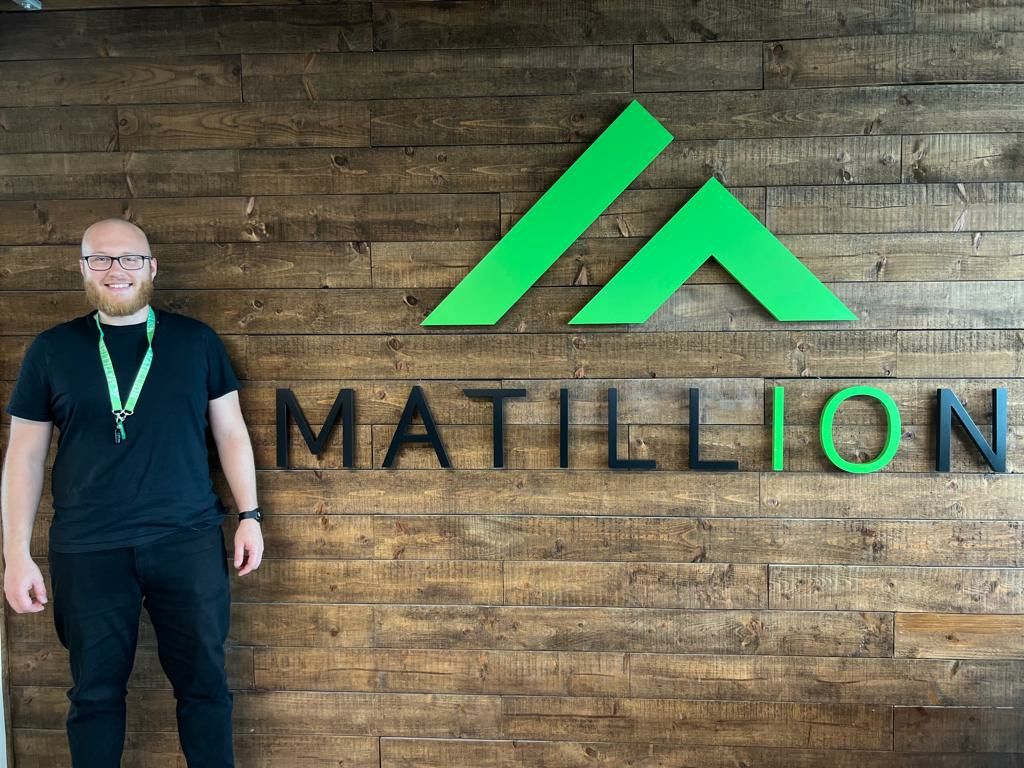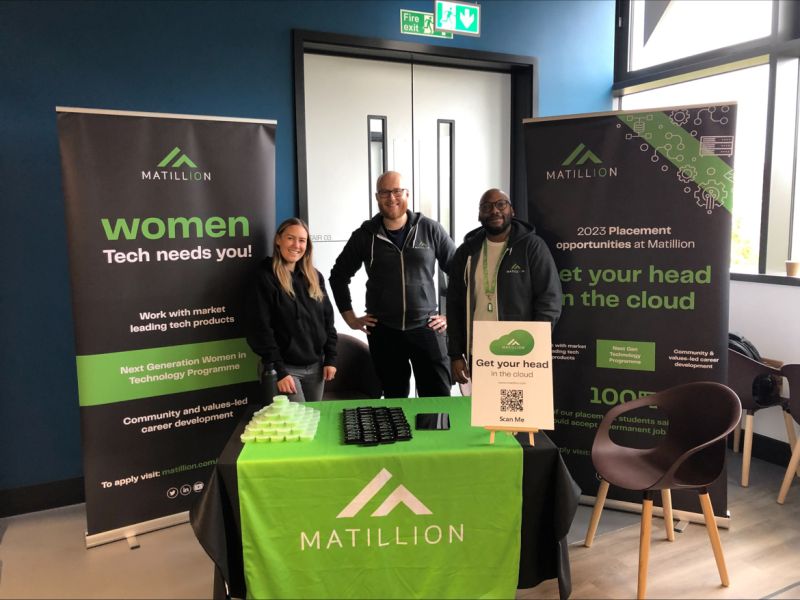Meet current Computer Science student Michal and read on to find out about his placement year with local company Matillion.

Which course are you taking?
I’m studying computer science, but I’m doing it with the foundation and placement years, so it’s a big sandwich (5 years total). Officially, my course title is BSc (Hons) Computer Science with Professional Experience.
Which organisation are you taking your placement with? And what is your role?
I’m working for a company called Matillion. To put it simply, it’s a data transformation company, which means that other companies come to us and use our platform to get meaningful and usable information out of their data. We have clients worldwide, ranging from Converse to Pokémon Go.
My job is to research and then build software that clients can use in the future. We have a platform that allows technical and non-technical people to connect their databases and then perform a kind of filtering or data transformation, so that they can get specific statistics and information that they want.
Can you tell us about your placement? What does your average day look like? What kinds of projects are you working on?
The job of a programmer is mostly building solutions for specific problems, using multiple programming languages and tools in interconnected ways. So, my every day is basically writing small pieces of code, figuring out why they don’t work and then fixing them.
I’m currently one of two people working on a project to build an interface and server for a data analytics tool that our client, IBM, can use with their pre-existing database.
Have you used any skills/ knowledge that you’ve developed during the first 2 years of your course on your placement?
Yes, non-stop! As my first experience in the professional world of tech, there is not a single piece of information that I haven’t used yet. Honestly, I would recommend everyone to learn everything that they can during their studies because when it comes to computer science, you’ll definitely use it all.
“I’d absolutely recommend doing a placement to everyone. You’ll spend a year with a company full of professionals who can help you when you make a mistake and tell you how to fix it. It’s so valuable because you can get so much help and really learn a lot.”
Michal, BSc (Hons) Computer Science with Professional Experience student
How did you secure your placement? What was the process like?
In early October I decided that I want to do a placement, so I started working on my CV and my cover letter. I had a lot of help with the wording and proofreading from my girlfriend. I then showed it to my tutor, who has been taking care of placement students and has had a lot of contact with partner companies over the years, so he was able to give me advice on how to make it better.
We have a module as part of the course called Career Development, where each week, we had a guest from various companies coming to talk to us. Matillion came to do talks a few times and I always found theirs the most interesting and I thought everyone from Matillion sounded very switched on. When I found out they were hiring for a placement role, I submitted for them and was really hoping that I’d get it.
The first step was doing a practical test where I was given a week to solve a programming problem. I then had an interview. At the time I was quite surprised because the interview was with the company’s CTO. I was proud when I was later offered the position and I found out that my programming submission was in the top 3%. I was offered a position in the experimental software team, rather than a more standard software developer role.
What new skills have you developed and what have you achieved so far?
I’ve learned all the most relevant technologies used by programmers today. They are all essential knowledge, so having this experience before I’ve started my career is really useful.
A more specific achievement is the fact that most of the software I’ve written is used in final products for our customers. The software I’m creating is in a test phase, and I’ve heard that some of the customers have chosen our company because of that software, so I feel that I’ve contributed to the company, so I feel happy about that.

What has been the most difficult challenge? How did you overcome it?
When I was studying, I had the freedom to get up and do something else if I got stuck or felt fed up. But when you work for someone else you have to sit through a full day and keep on working, so learning to focus for a full 9 hours without getting too distracted was a challenge.
The second, more difficult challenge was overcoming the imposter syndrome I felt when I first started the role. At the beginning, I kept thinking, “what am I doing here?”, and thinking that I wasn’t good enough for the job. As I got more familiar with the company, the job, and my own routine it got easier, and I became more confident in what I was doing.
How did it feel to come back to Salford during the placement to talk part in the Hackcamp project?
Hackcamp is a group project which sees students from Computer Science disciplines work together to solve a brief, provided by an industry client.
I had two very contradictory emotions. Firstly, I didn’t feel like a student anymore. And the second emotion was the sense of companionship with the other students. It was great being surrounded by people who just want to learn and who are curious about everything. It was very refreshing.
Would you recommend future students to take a placement? What advice would you give them?
Yes, I’d absolutely recommend doing a placement to everyone. I’ve heard at least two myths about the placement year from students. The first myth is that you work for free, but when it comes to computer science, you get paid quite well. Comparatively, if you worked in a restaurant, for example, you’d be making more or less the same money. So why not spend that year on doing something that you’re going to do in the future anyway?
The main argument I’ve heard against doing a placement is that students don’t want to waste a whole year doing it. I would say it’s not a waste when you’re just starting out in your career. You’ll spend a year with a company full of professionals who can help you when you make a mistake and tell you how to fix it. It’s so valuable because you can get so much help and really learn a lot.
As for the advice, firstly, just go for it. Secondly spend some time on your cover letter and CV. Ask someone more experienced to give you some advice. You want to make sure that you catch the attention of the recruiters straight away.
I’d also say don’t be scared to apply to as many different places as possible. Take your time writing your cover letter and personalise it to each company, so that they know you’ve done a bit of research into what they do.
Can you tell me what your aspirations or plans for your career are when you graduate?
I really enjoy working with people and I love teaching and helping others, so my final goal is to become a tutor sometime in the future when I have more experience.
In the meantime, I want to become a project manager, because I like having quite a lot of different responsibilities and I’d like to lead a team of people. I used to be a head chef in a restaurant, and I just loved the experience because you don’t just do one specific thing, there are lots of different elements you need to juggle. It’s a challenge.
Find out more about studying BSc Computer Science at Salford and about our industry-led group project Hackcamp.